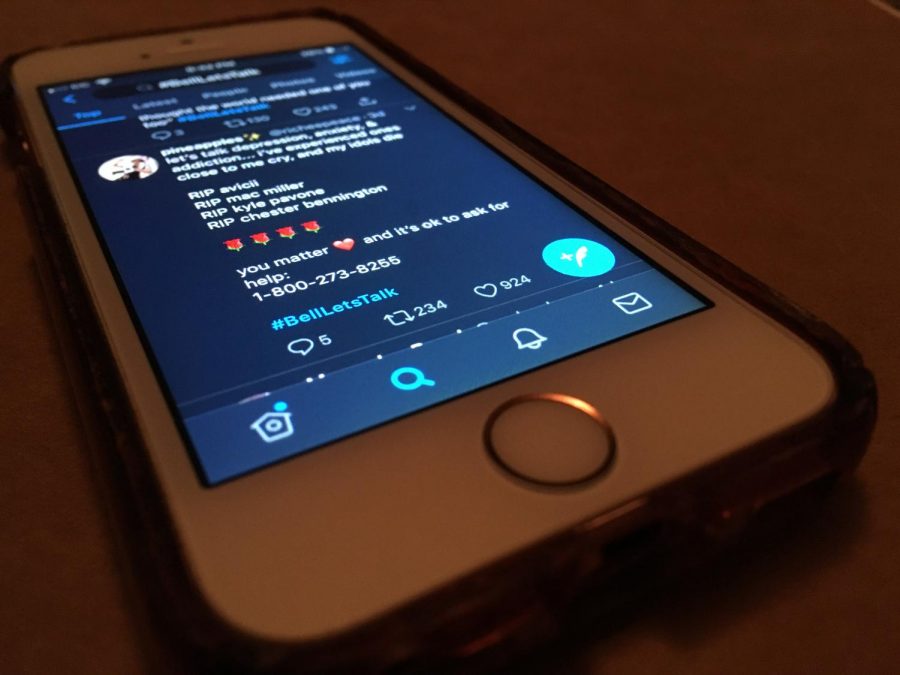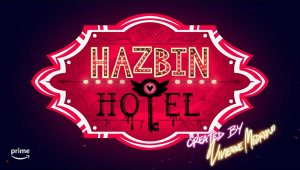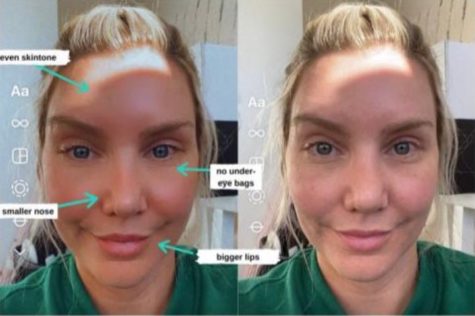#BellLetsTalk Is a Movement To Pay Attention To
#BellLetsTalk brings important attention to mental health.
February 4, 2019
Jan. 27 may be the most important day on Twitter every year. The hashtag “BellLet’sTalk” is more than a simple hashtag – it’s a movement to spark the conversation about mental health across the world.
The movement, which has been going on for nine years, is a day where millions of people express their own personal struggles with depression, anxiety, obsessive-compulsive disorder and other disorders and diseases.
It all started in 2010 by Bell, a Canadian phone company. The idea behind the hashtag was, of course, to spread mental health awareness. One day a year, Bell pledges to donate $0.05 for texts sent on Bell’s network for every tweet that uses the hashtag and for people who use the Facebook and Snapchat filter. The donations go toward Canadian mental health initiatives.
Bell has donated over 73 million to Canadian mental health initiatives since the movement began. The hashtag gets spread around like wildfire because celebrities and athletes use their platform for good to promote it. Without the help of celebrities, who knows how much attention the hashtag would receive?
Canadian singer and songwriter Nelly Furtado tweeted: “I had OCD as a child and thanks to the @Oprah show on OCD I saw on tv in the 80’s I understood what the heck it was #BellLetsTalk #Change.”
Other celebrities, such as Ellen DeGeneres, Celine Dion, Seth Rogen and Marcus Stroman tweeted as well, getting thousands of likes and retweets.
An important part of the message is addressing why we can we talk about chronic headaches and back pain, but when it comes to depression and substance abuse, the doors seem to shut. The hashtag is aimed to combat that by keeping the door open to discuss what sometimes may be an uncomfortable topic.
I find that, even during discussions with ordinary people, sometimes a piece is missing. How come we can bring up that our family members died of cancer or a heart attack, but we shy away from saying how depressed our family member was or how it impacts us in our own unique ways?
I believe that, as human beings, we can share that our family members died from some diseases because they are talked about more often. But the most important reason we feel more comfortable sharing this information is because it comes with little to no stigma.
Now, if we were to tell someone our best friend died of suicide or our mother is being hospitalized for substance abuse, our hearts become heavy and our minds become fearful. How about telling your friends or boyfriend or girlfriend that you have been diagnosed with bipolar disorder or have extreme anxiety?
We fear judgment. We fear societal neglect. But the movement is bringing people together to try and escape the fear that we keep inside. That’s why it’s more than a hashtag. It’s a movement to pay attention to.












